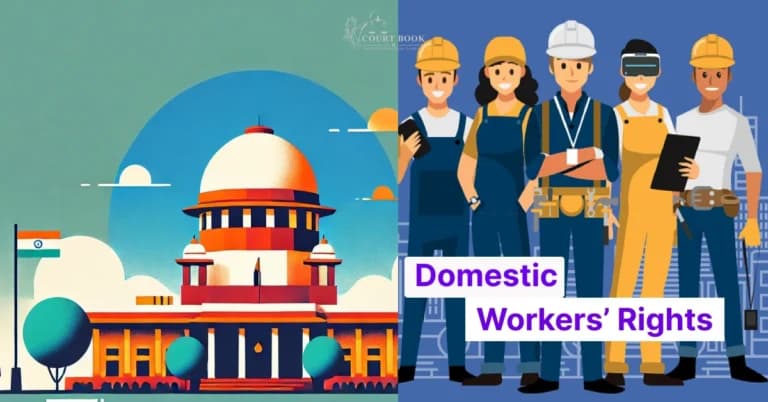The Supreme Court of India has directed the Union Government to consider enacting a comprehensive law to protect the rights of domestic workers, addressing systemic exploitation and legal gaps. The bench comprising Justices Surya Kant and Ujjal Bhuyan emphasized the urgent need for legislation while disposing of a criminal appeal involving allegations of wrongful confinement and trafficking of a female domestic worker.
Case Background
The case stemmed from an FIR registered in 2017 against Ajay Malik, a DRDO scientist, and others for allegedly confining a tribal woman from Chhattisgarh as a domestic worker. While the Court quashed proceedings against Malik due to insufficient evidence, it upheld the discharge of co-accused Ashok Kumar. However, the bench shifted focus to the broader issue of domestic workers’ vulnerability, stating:
Read Also - SC: Child Born in Marriage Presumed Legitimate; DNA Test Cannot Be Forced on Adultery Allegations
“Domestic workers often belong to marginalised communities… compelled to undertake domestic work due to financial hardship. Their contributions are indispensable, yet they remain unprotected by law.”
The Court highlighted the absence of a pan-India law regulating domestic work, leaving millions vulnerable to low wages, unsafe conditions, and abuse. It noted:
“The legal vacuum perpetuates exploitation. Domestic workers are excluded from key labour laws like the Payment of Wages Act and the Sexual Harassment at Workplace Act.”
While acknowledging state-level initiatives (e.g., welfare boards in Tamil Nadu and Maharashtra), the bench stressed the need for uniform protections. It cited international standards, including the ILO’s Domestic Workers Convention (2011), which India has yet to ratify.
Read Also - Supreme Court Orders ₹5 Lakh Compensation Three Individuals for Wrongful Conviction in Haryana Murder Case
Failed Legislative Efforts and Recent Developments
The judgment recounted India’s unsuccessful attempts since 1959 to pass laws for domestic workers, including the Domestic Workers Welfare Bill (2016) and the Domestic Workers (Regulation of Work and Social Security) Bill (2017). However, it recognized recent strides like the Social Security Code (2020), which classifies domestic workers under the “unorganised sector,” making them eligible for benefits like health insurance and maternity leave.
Directives to the Union Government
Invoking its authority under Article 142, the Court issued key directives:
- The Ministry of Labour, along with related ministries, must form an expert committee to draft a legal framework for domestic workers’ welfare.
- The committee should submit recommendations within six months, after which the government should prioritize enacting a law.
“The Committee’s report should address fair wages, safe working conditions, and social security. Domestic work must be recognized as dignified labour.”
The judgment underscores the judiciary’s role in advocating for marginalized groups. By urging legislative action, the Court aims to bridge the gap between India’s growing demand for domestic workers and their lack of legal safeguards. Activists hope this directive will accelerate long-pending reforms, ensuring millions gain access to justice and dignity.
“The time has come to transform domestic work from invisible labour to recognised, protected employment. The state must act decisively.”
Cause Title: Ajay Malik v. State of Uttarakhand and Anr. (Neutral Citation: 2025 INSC 118)













